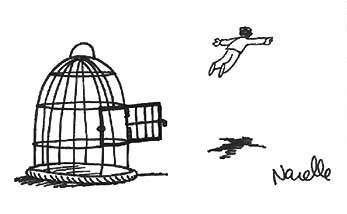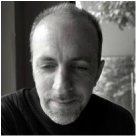|
By: Ric Hudgens  At the beginning of the twentieth century it was theologian Karl Barth who first raised the question of a domesticated God: a God tamed, confined, and muted by humanity’s drive to control and domination. Only a few years later Europe saw that the progressive domestication of God did not lead to freedom but to the furnace and the gulag—not to the heavenly city of the eighteenth century Enlightenment philosophers, but to the hell of the twentieth century totalitarians. The church has been just as afraid of an undomesticated, wild God as the world has been. When Moses heard the voice of the Lord in the desert at Sinai and asked for a name he was told, “I will be who I will be”—deal with it! When Jesus tried to talk about the basileos of God he had to reach for verbal and enacted parables because this movement’s exact outlines could never be fully anticipated. When the Holy Spirit came on Pentecost the early church began an unpredictable “wild goose” chase, starting new Jesus-communities everywhere they were led. Through its institutions, its theology, and its political compromises the church has continually attempted to domesticate this untamable deity. But every once in awhile (think Azusa Street or Montgomery) the gospel escapes into the streets taking at least part of the church with it, and planting new seedlings of the Spirit everywhere it goes. It is becoming harder and harder to dream an alternative future for our world. Political polarizations, economic integrations, and social fragmentations increase our sense of futility and despair. There is less and less room to maneuver, fewer and fewer opportunities to experiment with new ways of living and being. We are all born into a circle of community. That first circle may be as small as a mother and child. But we soon enter into other circles: extended family, school, church, work. All of these circles shape and misshape us. They teach us about friendship, loyalty, and love. They teach us about estrangement, betrayal, and anger. As a result we all suffer from “affection deficit disorder” and have trouble forming and maintaining loving commitments. Our affections drift and fade. Our loves are often more compulsive than intentional, more obsessional than faithful. Christian community should be an alternative community where we learn new ways of living and loving—ways that reshape our selves into the “abundant lifers” that God intended. But rather than bringing us freedom many of our churches and communities only provide alternative forms of domestication. They are not about freeing God’s Spirit within us; but binding, taming, and stifling that Spirit so that the institutional structures will remain settled and unchanged. We can’t hope to change this situation easily or without some long-term effort. At best we can hope for “little moves against destructiveness” (1) where we can create some “interstitial distance" (2) from the state. Sallie McFague (3) originally and Emmanuel Katongole (4) more recently have talked about the importance of “wild spaces”. Rather than focusing on participation in the halls of political power (be it governmental or denominational), or evangelism among the corporate and academic elite, the church should focus on becoming a “wild space” on the margins of the dominant culture. In these wild spaces we could develop the skills to live lives that don’t fit societal stereotypes or conventions. It is the place where we can question social norms and imagine new alternatives. The church must find the “rifts” in contemporary culture where they can reinhabit a new way of being human on this earth. McFague wrote: “If you are [a] poor Hispanic lesbian, your world will not fit into the conventional Western one. It will overlap somewhat (you may be educated and able-bodied), but there will be a large crescent that will be outside. That is your wild space; it is the space that will allow—and encourage—you to think differently, to imagine alternative ways of living. It will not only give you problems, but possibilities.” Hiking in Wyoming a few years ago I was continually amazed and awed at it’s natural beauty. It was a wild beauty – most beautiful where it was most untouched by human hands. A wild space is not a disorderly space, but a differently ordered space. It is an order that may look like disorder to those who are overly domesticated and tamed. Wild spaces encourage, allow, and empower us to imagine alternative ways of living. Without wild spaces we are doomed to a deeper domestication, perpetually constrained by the circles that misshaped us in the first place. Wild spaces are where we are free to be different, to experiment, to imagine, to risk, to dare, to dream, to play. Christian community must become a wild space for the Spirit if we are to have any hope of faithful witness in the world today. Christian community must become a place where we can resist and reshape our lives according to the freedom we have in Christ (Gal 2:4)—a place where we are being reshaped into the transformed nonconformists and creative extremists that Dr. Martin Luther King used to preach about. This will primarily be a work of the Christian imagination. Our imaginations have also been shaped and misshaped. They have been domesticated, tamed, and disordered. We find it easier to imagine an alternative universe on a planet millions of light years away, than we do to imagine a different world right here on planet earth. If we are to reorder that domesticated imagination then the practice of worship may be the place for us to start. John Roth wrote that “How we live is always an expression of what we worship. Ethics is an extension of worship.” (5) If that is true (and I think that it is) then worship becomes a foundational practice for establishing a wild space in which the Christian imagination can root and flourish. (6) In Christian worship we reorder our imaginations in accordance with the alternative future of Jesus through the telling of foundational stories about an alternative community no longer living according to the domestication of the world, the flesh, and the devil, but “being transformed by the renewal of our minds” (Rom 12:2). Christian communities should be wild spaces where we are free to imagine new undomesticated ways of living out our faith: worshiping, singing, dancing, playing, working, loving in ways that to the world may look “uncivilized” and perhaps even “wild”; and yet are true expressions of our freedom in Christ and our liberation in the Holy Spirit. “If the Son sets you free, then you are free indeed.” (John 8:36). (7) ---------
 Ric Hudgens is a "conspiratorial consultant" for ProActive: The Prophetic Activism Initiative: "creating spaces for God's freedom dreams". He is a perpetual newcomer to intentional Christian community at Reba Place Fellowship in Evanston, Illinois and pastor-in-residence at a local African-American congregation.
Comments
|
Disclaimer
The viewpoints expressed in each reader-submitted article are the authors own, and not an “official Jesus Radicals” position. For more on our editorial policies, visit our submissions page. If you want to contact an author or you have questions, suggestions, or concerns, please contact us. CategoriesAll Accountability Advent Anarchism Animal Liberation Anthropocentrism Appropriation Biblical Exegesis Book Reviews Bread Capitalism Catholic Worker Christmas Civilization Community Complicity Confessing Cultural Hegemony Decolonization Direct Action Easter Economics Feminism Heteropatriarchy Immigration Imperialism Intersectionality Jesus Justice Lent Liberation Theology Love Mutual Liberation Nation-state Nonviolence Occupy Othering Pacifisim Peace Pedagogies Of Liberation Police Privilege Property Queer Racism Resistance Resurrection Sexuality Solidarity Speciesism Spiritual Practices Technology Temptation Veganism Violence War What We're Reading On . . . White Supremacy Zionism ContributorsNekeisha Alayna Alexis
Amaryah Armstrong Autumn Brown HH Brownsmith Jarrod Cochran Chelsea Collonge Keith Hebden Ric Hudgens Liza Minno Bloom Jocelyn Perry Eda Ruhiye Uca Joanna Shenk Nichola Torbett Mark VanSteenwyk Gregory Williams Archives
October 2017
|
Search by typing & pressing enter

 RSS Feed
RSS Feed